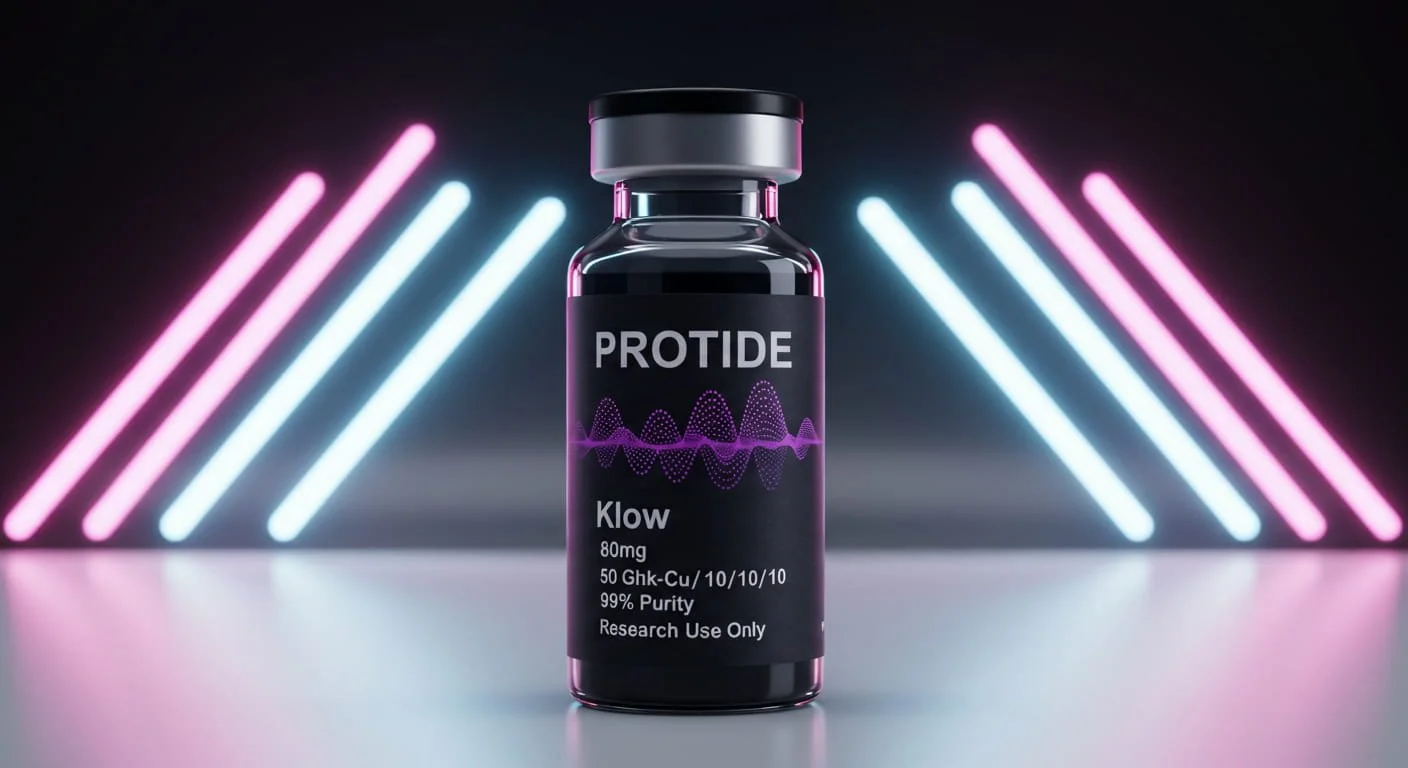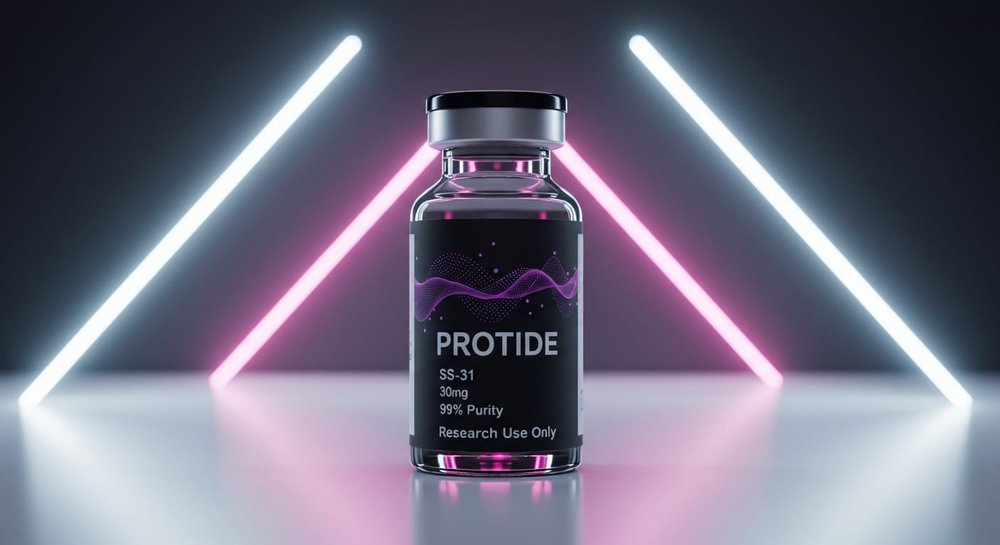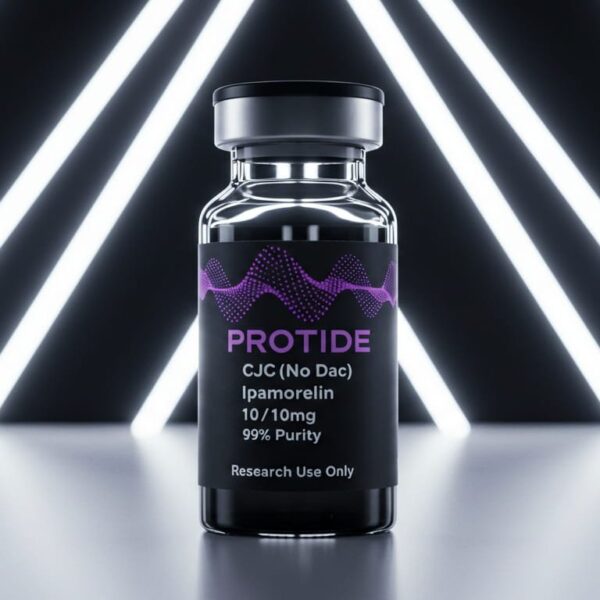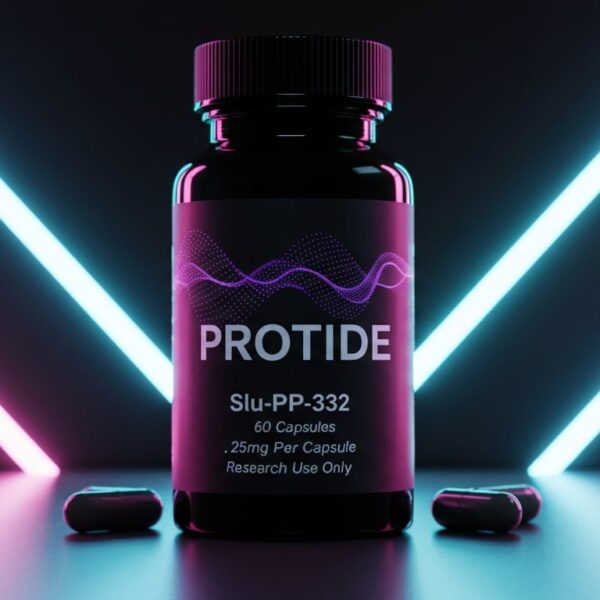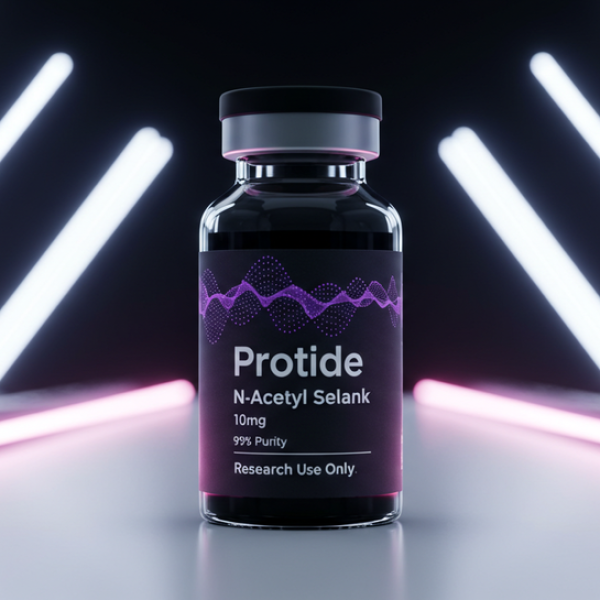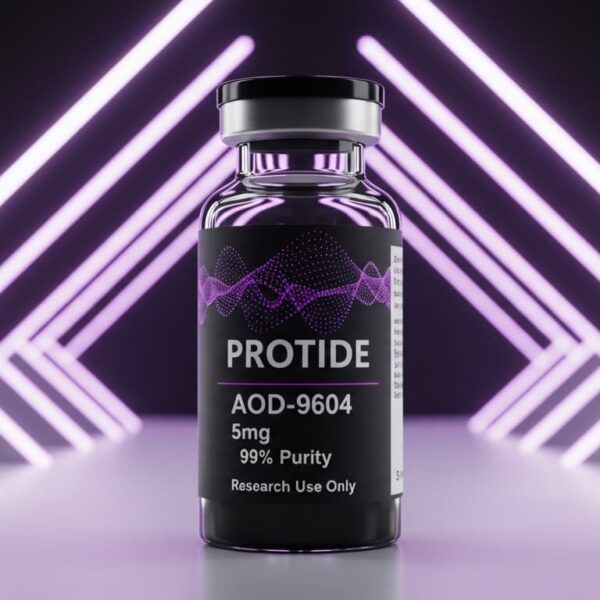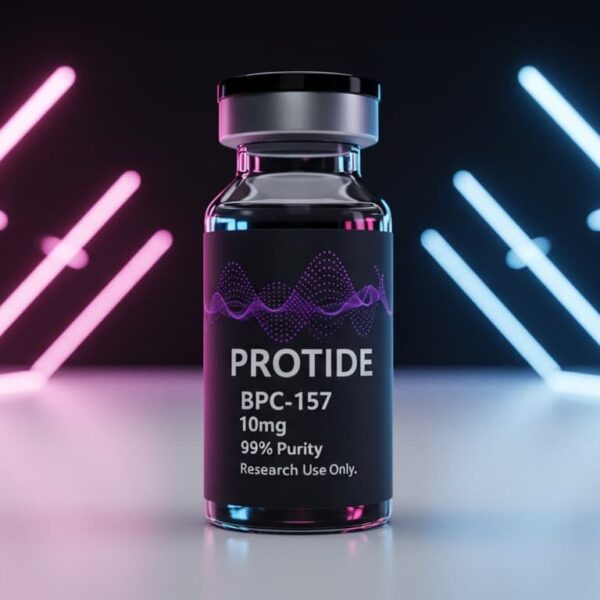$0.00
Overview of NMN: A Metabolic Research Compound
NMN is a nucleotide (C11H15N2O8P) with a molecular weight of approximately 334.22 Da, naturally present in trace amounts in foods such as broccoli and avocados. It serves as a direct precursor to NAD+, a coenzyme critical for over 500 enzymatic reactions, including energy production, DNA repair, and sirtuin activation PMC, NMN Metabolism. Synthesized for research purposes, NMN is typically administered in preclinical models via oral gavage, intraperitoneal injection, or in vitro assays, with a plasma half-life of approximately 10–20 minutes due to rapid conversion to NAD+ PMC, NMN Pharmacokinetics.
Investigated for its ability to restore NAD+ levels, which decline with age, NMN is studied in preclinical and early-phase clinical trials to elucidate its effects on mitochondrial function, glucose metabolism, and cellular senescence. Its role in supporting NAD+-dependent pathways makes it a valuable tool for research into aging, metabolic disorders, and neurodegenerative conditions PMC, NMN Aging Research. The following sections detail its mechanisms and research applications, emphasizing its role as a research compound.
Mechanism of Action: NAD+ Biosynthesis and Cellular Regulation
NMN exerts its effects by serving as a substrate for NAD+ synthesis, primarily via the salvage pathway, influencing cellular energy and regulatory processes. Its mechanisms have been characterized in preclinical models, with limited clinical data providing additional context PMC, NMN Mechanism.
NAD+ Biosynthesis: NMN is converted to NAD+ by nicotinamide mononucleotide adenylyltransferase (NMNAT) enzymes, increasing intracellular NAD+ levels by 20–50% in rodent tissues within 24 hours at 500 mg/kg PMC, NMN Metabolism. This enhances NAD+-dependent enzymes like sirtuins and PARPs.
Mitochondrial Function: NMN boosts mitochondrial oxidative phosphorylation, increasing ATP production by 15–25% in aged mouse muscle cells via SIRT1 activation PMC, NMN Mitochondrial Effects.
Metabolic Regulation: NMN enhances insulin sensitivity and glucose uptake by upregulating GLUT4 expression by 10–20% in rodent adipocytes, supporting metabolic homeostasis PMC, NMN Glucose Metabolism.
Pharmacokinetics: In preclinical models, NMN (500 mg/kg oral) peaks in plasma within 10–30 minutes, with rapid tissue distribution and conversion to NAD+ in liver, kidney, and muscle PMC, NMN Pharmacokinetics.
Preclinical studies in aged mice (500 mg/kg/day) showed a 20–30% increase in tissue NAD+ levels and improved insulin sensitivity after 7 days PMC, NMN Aging Research. Early-phase human trials (250–500 mg/day oral) reported 10–20% NAD+ elevations in blood, with no significant adverse effects PMC, NMN Clinical Trials. These findings underscore NMN’s research potential.
Research Applications of NMN: Insights from Preclinical and Clinical Studies
NMN’s role in NAD+ restoration makes it a versatile research tool for studying cellular metabolism, aging, and disease states. The following applications are strictly for investigational use in controlled environments, supported by peer-reviewed findings:
Cellular Energy and Mitochondrial Research
NMN is investigated for its effects on mitochondrial bioenergetics:
Increases mitochondrial NAD+ by 20–30% in mouse myoblasts, enhancing oxidative phosphorylation and ATP output by 15–25% PMC, NMN Mitochondrial Effects.
Improves mitochondrial membrane potential by 10–20% in aged rodent hepatocytes, supporting cellular energy homeostasis PMC, NMN Metabolism.
Research explores NMN’s role in mitochondrial dysfunction models, such as those mimicking Leigh syndrome PMC, NMN Aging Research.
Metabolic Regulation and Glucose Homeostasis
NMN’s impact on glucose metabolism is a key research focus:
Enhances insulin sensitivity by 25% in prediabetic mouse models (500 mg/kg/day for 7 days), linked to SIRT1-mediated GLUT4 upregulation PMC, NMN Glucose Metabolism.
Reduces fasting glucose by 10–15% in obese rats, improving HOMA-IR scores PMC, NMN Clinical Trials.
Limited human data show improved insulin response in prediabetic women at 250 mg/day, though larger trials are needed PMC, NMN Aging Research.
Aging and Cellular Senescence
NMN is studied for its anti-aging potential via NAD+ restoration:
Reduces senescence markers (p16, p21) by 20% in aged mouse tissues, linked to SIRT1 activation PMC, NMN Mitochondrial Effects.
Extends healthspan in mice by 10–15%, improving muscle function and vascular integrity PMC, NMN Metabolism.
Research explores NMN’s role in DNA repair via PARP1 activation, enhancing genomic stability PMC, NMN Aging Research.
Neurological Research Potential
Emerging preclinical data suggest NMN’s influence on neuroprotective pathways:
Increases brain NAD+ by 15–20% in mouse models, reducing oxidative stress markers by 10–15% in neuronal cultures PMC, NMN Glucose Metabolism.
Improves memory retention by 15% in aged mice, potentially via SIRT1-mediated neuroprotection PMC, NMN Aging Research.
No significant cognitive effects validated in humans, requiring further investigation PMC, NMN Clinical Trials.
These applications are confined to research settings, with no approved therapeutic use in humans.
Research Populations and Study Designs
NMN’s research applications target specific investigational populations and study designs:
Biochemistry Researchers: Scientists studying NAD+ biosynthesis or mitochondrial function use NMN in cell-based assays to explore SIRT1 and PARP pathways PMC, NMN Metabolism.
Metabolic Disease Investigators: Researchers examining obesity, diabetes, or insulin resistance employ NMN in rodent models to study glucose metabolism PMC, NMN Glucose Metabolism.
Aging Scientists: Those investigating cellular senescence or healthspan use NMN to model NAD+ decline in aged animals PMC, NMN Aging Research.
Typical study designs involve mouse models (e.g., C57BL/6) dosed at 300–500 mg/kg/day for 7–28 days, measuring NAD+ levels, metabolic markers, or senescence indicators. Human trials, though limited, used 250–500 mg/day orally for 4–12 weeks, assessing NAD+ and safety PMC, NMN Clinical Trials.
Research Limitations and Considerations
Several limitations and considerations apply to NMN research:
Limited Clinical Data: Phase 1 trials confirm safety and NAD+ elevation, but efficacy for metabolic or aging outcomes is inconclusive, requiring larger trials PMC, NMN Clinical Trials.
Regulatory Status: NMN is not approved by the FDA or any regulatory body for human use and is designated for research purposes only. Its status as a dietary supplement was challenged by the FDA in 2022, citing drug development considerations PMC, NMN Regulatory Status.
Side Effect Profile: Preclinical studies report no significant adverse effects at 300–500 mg/kg/day. Human trials noted mild gastrointestinal discomfort in <3% of participants PMC, NMN Pharmacokinetics.
Dosing Variability: Research doses (300–500 mg/kg/day in animals, 250–500 mg/day in humans) lack standardization, requiring precise protocols PMC, NMN Metabolism.
Resistance Concerns: High doses may induce NAD+ hydrolase (CD38) activity, potentially limiting efficacy, though data is preliminary PMC, NMN Aging Research.
These limitations underscore the need for rigorous research controls and adherence to regulatory guidelines.
Conclusion: A Key Tool for NAD+ Research
NMN, a critical NAD+ precursor, is a robust research tool for studying cellular metabolism, mitochondrial function, and aging. Preclinical studies demonstrate 20–50% NAD+ increases, 15–25% ATP enhancement, and 25% improved insulin sensitivity, while early clinical trials confirm safety and modest NAD+ elevation. For researchers investigating bioenergetics, metabolic disorders, or senescence, NMN offers precise insights in controlled studies. Its investigational status, limited clinical efficacy, and regulatory restrictions confine its use to research settings.
Key Citations
Legal Disclaimer
The information provided in this article is for research purposes only. Nicotinamide Mononucleotide (NMN) is not approved by the U.S. Food and Drug Administration (FDA) or any regulatory authority for human consumption or therapeutic use. It is intended solely for investigational use in controlled laboratory settings by qualified researchers. Protide Health does not endorse or promote the use of NMN in humans or animals outside of approved research protocols. Researchers must comply with all applicable local, state, and federal regulations, including obtaining necessary approvals for experimental use. Consult with regulatory authorities before initiating any research involving NMN.

